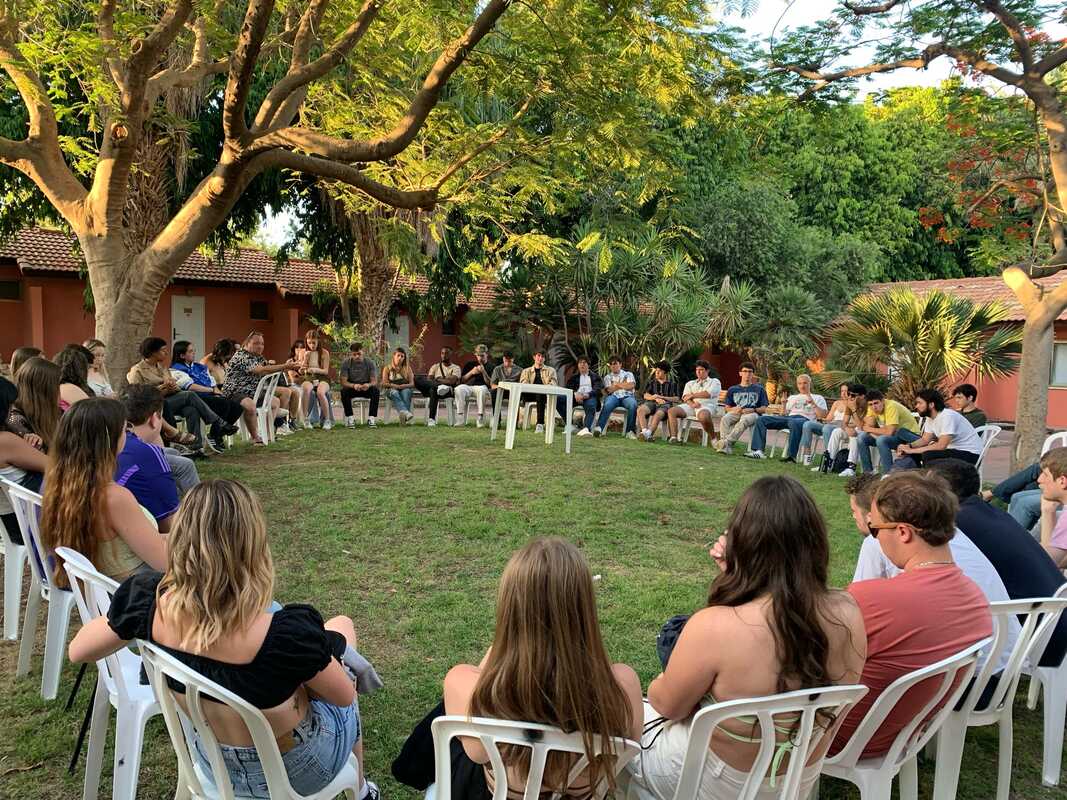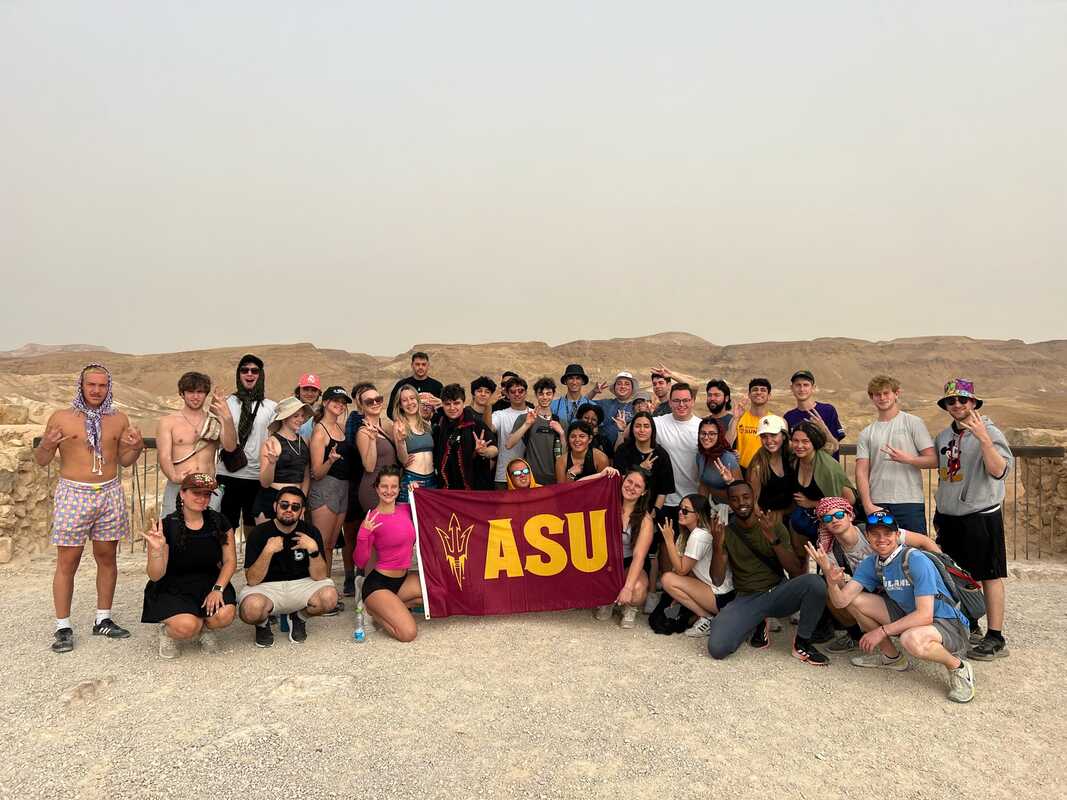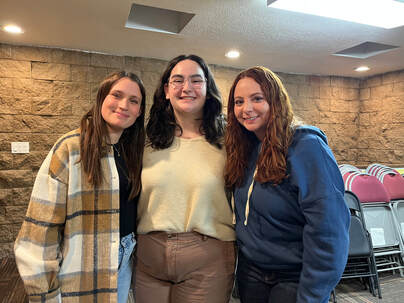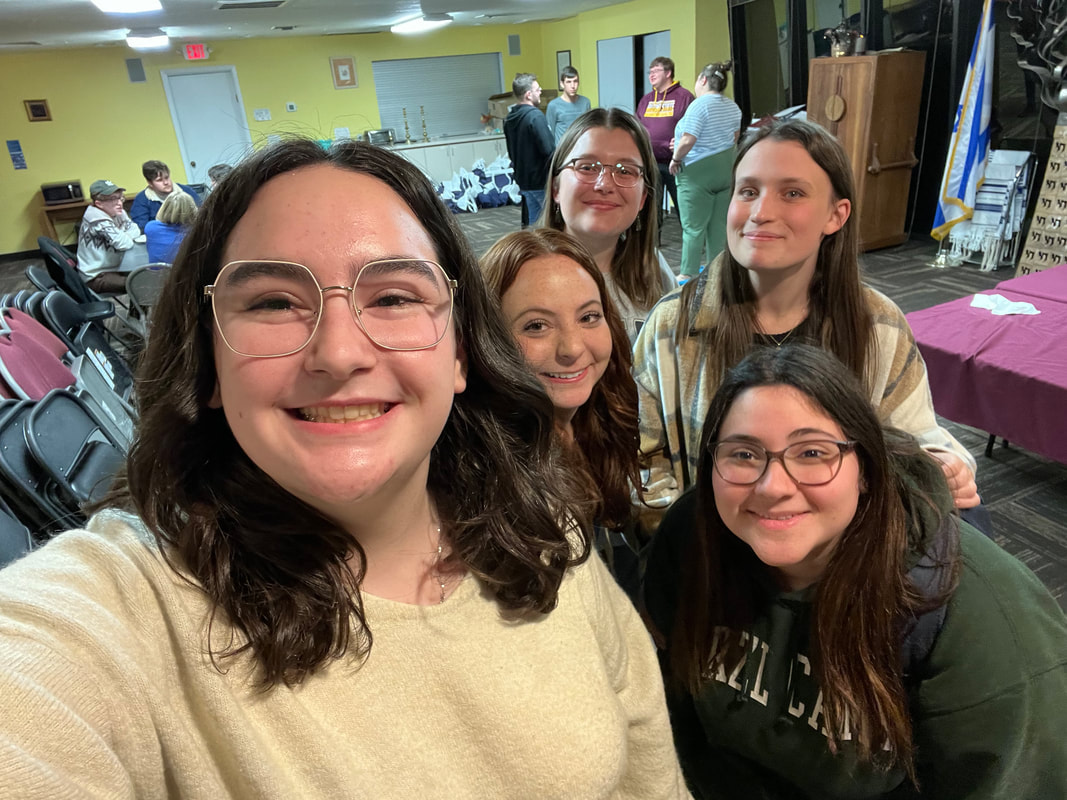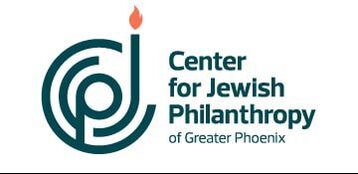|
Our first Birthright Israel bus returned home from Israel with 45 new friends and a newfound connection to the State of Israel that will last a lifetime. Their Mishpacha (Hebrew word for "family") began their journey in the north, where they explored the mystical city of Safed, rafted on the Jordan Rive, and experienced Bedouin hospitality at its finest. The group then traveled south to Jerusalem, where they were joined by seven incredible Israeli soldiers who helped navigate the Shuk, explore the Old City, and celebrate Shabbat at their beautiful kibbutz accommodation. As the trip hit its peak, the students ascended Masada as the sun rose above the hills. Atop the mountain, they celebrated the B'nai Mitzvot of 6 students, a celebration worthy of all the music, laughs, and dancing as they finished the trip on the beaches of Tel Aviv.
Our second bus just completed their 10-day trip which you can see more of on our Instagram page! They enjoyed exploring Jerusalem, Masada, the Dead Sea, and Mitzpe Ramon in the Negev desert. They took advantage of every minute and we're already thinking about how we can help them bring these meaningful memories with them back to campus. As the great Jewish philosopher Ahad Ha’am once said: "More than Jews have kept Shabbat, Shabbat has kept the Jews." But how can we inspire a new generation of young adults to create their own Shabbat practice? And how do we cultivate a Shabbat community that “keeps” Jewish ASU students connected to one another, the people of Israel, and our Jewish heritage, while simultaneously embracing the modern world?
The answer: Authenticity and Ownership. For me, authenticity means that we are always encouraging students to “come as they are,” no matter their background, faith, or level of observance. Whether our students come to learn, pray, or simply have a delicious Shabbat meal, we have a “no pressure, no guilt” policy. If they have to leave early, or if our staff needs to deliver dinner to a sick student, we want our students to know that we value their participation no matter what. I’m proud to say that we have already provided over 1,130 Shabbat meals this year, which enables us to continue to foster an authentic sense of spirituality, joy, and belonging. The second key ingredient of Shabbat at Hillel is ownership. Each week 10 student leaders work together to discuss, plan and facilitate a unique Shabbat experience for their peers. This means that our student leaders transform at least one Friday night a month into a unique, out of the box experience that speaks to their own interests and passions. For example, this semester they “deconstructed” Shabbat for over 50 GCU students during Interfaith Harmony Week. Before Reproductive Rights Shabbat, they helped assemble 100 hygiene kits for a local women’s shelter. From leading prayers to giving sermons to playing in our Kabbalat Shabbat “Shabband,” our students are moving themselves from passive Shabbat participants into active leaders who are creating their own, authentic Jewish experience. By promoting the values of ownership and authenticity, Hillel at ASU is empowering our students to keep shabbat in unique and meaningful ways so that the tradition will always keep them connected to the Jewish community for generations to come! 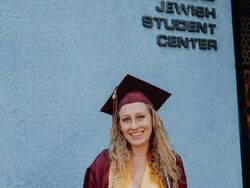 Shabbat dinners are an amazing time for routine, connection, spirituality, and nourishment. These are all things I believe are integral to mental health, and these are all things I discovered through Hillel at ASU. Hillel helped me tremendously during college; it was the only community where I felt I belonged and I don't think I would have graduated without it. If they believed in me as a leader, I felt I could also believe in myself as a leader. Hillel helped me gain confidence and connected me with people who made me feel cared about and valued. Now, I am the Phoenix Community Ambassador for OneTable. OneTable empowers people who don’t yet have a consistent Shabbat dinner practice to build one that feels authentic, sustainable, and valuable. We support folks (21-39ish) to find, host, and share Shabbat dinners. We provide resources to make your Friday night extra special: support from your Field Manager (me!), Shabbat guides, and Nourishment (gift cards for food/cookbooks/ritual items or whatever you need to host — $10 per person, up to $300 per dinner!). If you're interested in becoming a host or connecting further, email [email protected]. 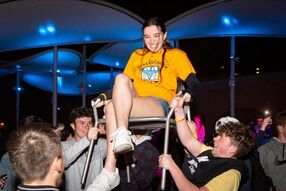 My first time at Hillel was the welcome brunch my first year. I felt so welcomed, everyone was so kind, and I knew it was a place I would return to. Hillel has become my home away from home in Tempe, which especially as an out-of-state student is so important to have. I’m grateful for the many experiences and memories Hillel has given me so far, but especially for the opportunity to be a signature social chair and help plan large-scale social events. Hillel gives students a space to go to have fun and feel connected to friends, whether that be at Shabbat or a signature social event, like Casino Night and HillelChella! My favorite Hillel memory is from this past fall during HillelChella. The environment was fun and upbeat, encouraging us all to break out dancing! We started dancing the Horah and lifting each other up in chairs and it was a joy-filled, fun-filled, night for all! My college experience would not be the same without Hillel, and the experiences I get connecting with other Jewish students and students from all across campus, thanks to the signature social events. |
FOLLOW US!Hillel at ASU is proudly sponsored by the Center for Jewish Philanthropy of Greater Phoenix.
|
|

